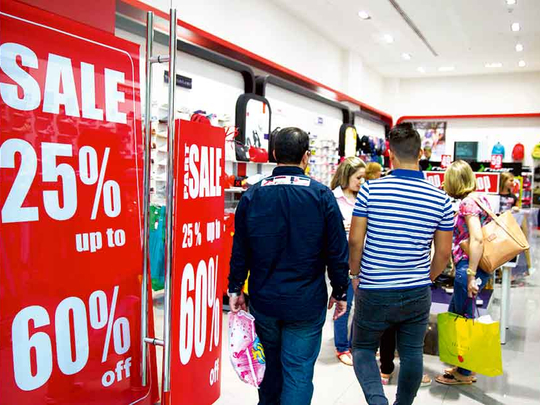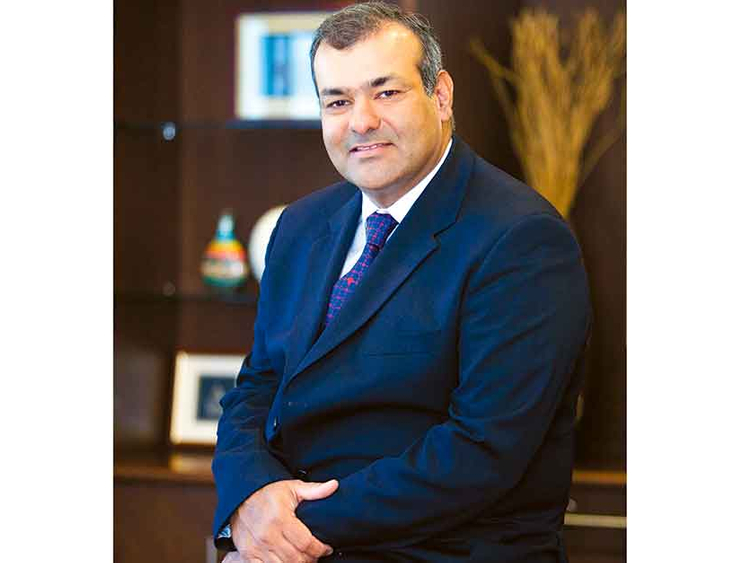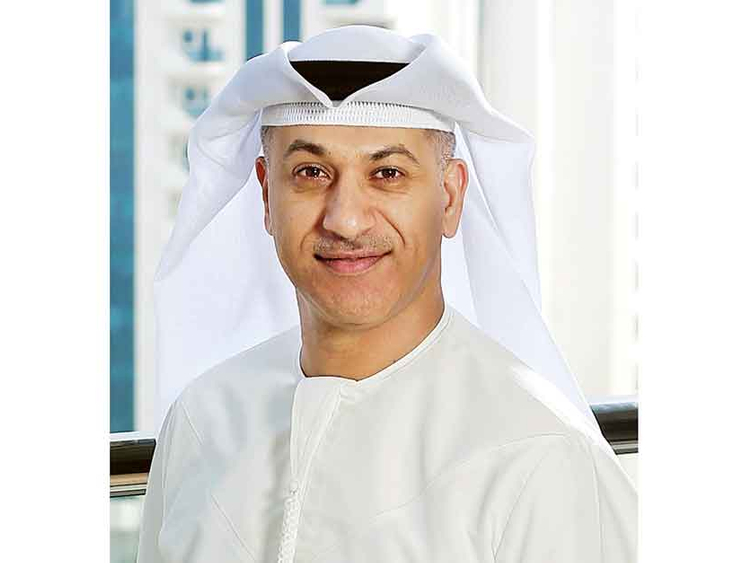
The UAE retail sector expects to see a modest growth in sales this Dubai Summer Surprises (DSS) as retailers are optimistic about consumer spending during the 43-day shopping festival that begins on Saturday. Euromonitor International estimates sales over the period to total between Dh400 billion and Dh600 billion.
Consumers have tightened their spending even as retailers line up incentives to woo them. The luxury sector has been hit the hardest owing to a decline in Russian tourists, while the mid-market segment is making the most of the situation by catering to the value-driven purchasing needs of the consumer. Low oil prices have also contributed to a sense of uncertainty, experts say. But despite sluggish buying, strong purchasing power and efforts to increase tourist inflow will contribute to growth.
Wave of optimism
Vipen Sethi, CEO of Landmark Group that runs Splash, Centrepoint and Babyshop, among other stores, is hopeful despite DSS falling in the leanest buying season of the year. “As the festival begins post-Eid, we expect to see continued surge in sales from both Middle Eastern travellers, who extend their stay in the UAE post the holiday period, and resident shoppers,” he says.
“A lot of the shopping activity will coincide with the Back to School season, adding a sizeable resident mix to the DSS shopper base. Keeping these factors in mind, we expect to see a strong summer this year with double-digit growth in sales.”
Majid Al Futtaim, which operates malls across the nation, is confident this DSS will be bigger and better than the last. “Our sales and footfall remain stable and we look towards DSS, the summer as a whole, and the remainder of 2016 and beyond positively,” says Fuad Mansour Sharaf, Senior Director — Property Management, Shopping Malls for Majid Al Futtaim Properties.
He declined to give a sales forecast.
Deals galore
DSS discounts are a key factor affecting retail success. “Attractive incentives combined with government efforts to lure more tourists to the UAE will set a firm base for DSS despite the uncertainty in the economy,” says Diana Jarmalaite, Research Analyst, Euromonitor International.
However, a slowing regional economy is affecting the UAE too, she says. “We observe a lot of companies implementing cost-cutting strategies, while consumers display budget-conscious spending patterns.”
Nevertheless, she adds, the shopping incentives are hard to resist. “The sluggish purchasing mood is shaping the overall market in the UAE and the region. For this reason, we have observed a huge load of sales and promotional activities since the beginning of 2016,” she says, warning that the second half of the year will get off to a modest start. “A decrease in the number of tourists during summer as well as the vacation season will see a slow beginning, but DSS and the end of summer are expected to add more dynamics into retailing, ending the year on a more positive note.”
The luxury sector has been the most affected, with sales stagnating at Dh17.5 billion at the end of 2015, as per Euromonitor data. A drop in Russian tourist spending has been one of the major contributors. In 2015, as compared to the previous year, the number of Russian tourists declined by 50 per cent and their expenditure by 45 per cent.
When combined with the uncertainty unleashed by the drop in oil prices, consumers will look for cheaper items, she says. “During the second half, we expect the affordable luxury items to fill the gap of slow-performing iconic luxury brands.”
Sethi says mid-market retailers such as Landmark have not seen a significant change in consumer spend. “Nonetheless, UAE consumers are being more prudent. Their top priority is getting more value for money and this works well for mid-market retailers such as us.”
Strong fundamentals
Overall, the sector remains healthy. The Dubai Chamber of Commerce and Industry expects the UAE’s retail market to reach Dh200 billion in 2017, growing by 5 per cent on average each year. The report says consumer confidence in the UAE has not been negatively impacted by expectations of decelerating economic growth in the region.
“A strong purchasing power still remains in the country; therefore big-ticket items are also selling well, only retailers’ margins are going down,” says Jarmalaite.
As the UAE’s economy is diversified, any negative impact will be felt much less compared to other regional economies that rely more heavily on oil, says Sharaf. “The UAE’s non-oil sectors — retail, hospitality, construction and real estate — continue to remain major contributors to the country’s GDP.”
A Visa study placed UAE residents among the leaders in e-commerce in the region. “GCC shoppers are young, brand-savvy and prefer brands that have an omnichannel presence — in malls, through e-commerce and social media,” he says. “Retailers need to bring it all together for a complete brand experience.”














